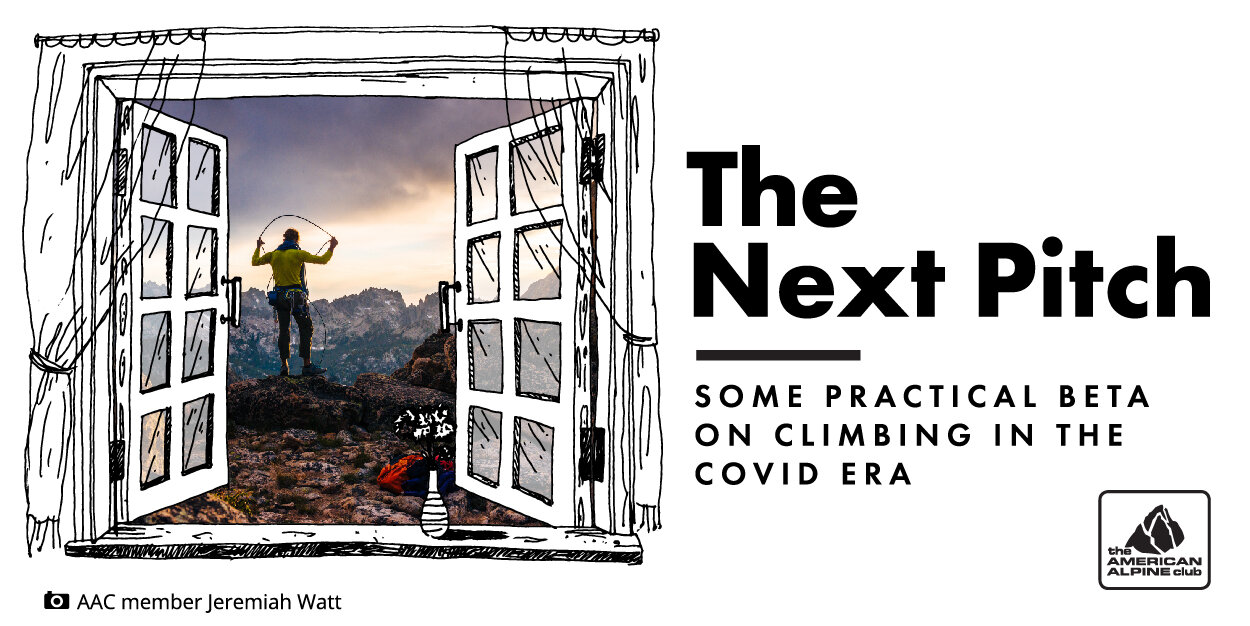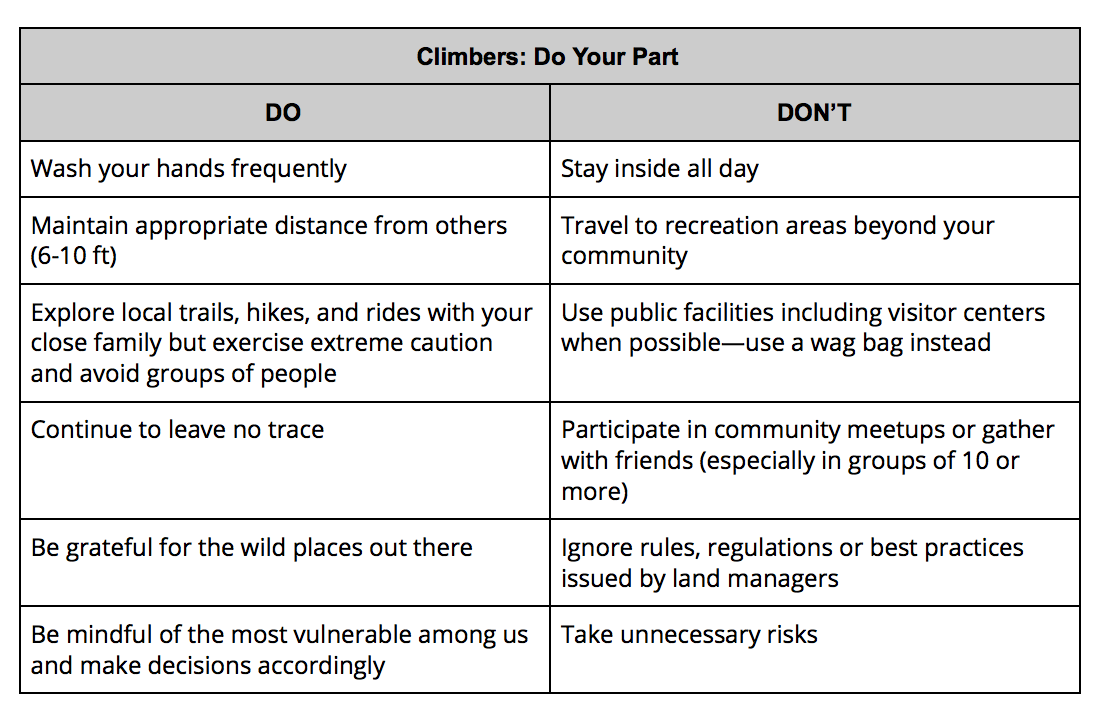Throughout the pandemic, climbers have cleared the crags and demonstrated responsible decision-making out of concern for their community. Thank you.
Across the country, restrictions on access to public lands are beginning to change, and, with heightened vigilance, climbers have started to head back to the crags. As we re-engage the activity that we love, our decisions should prioritize the well-being of all individuals and communities that we may impact.
To help foster responsible decision-making and protect vulnerable communities, we offer the following Guiding Principles as we enter the next phase of the pandemic.
GUIDING PRINCIPLES:
Don't become a vector for transmission; your behavior matters.
Default to always wearing a mask when there is a potential of being near others.
Know and follow federal, state, county, and local health guidelines and recommendations.
Follow guidance from local land managers and climbing organizations.
Be respectful of rural gateway communities, and use heightened vigilance if you choose to travel to these areas.
Keep your objectives conservative. Climbing accidents are avoidable and expose first responders, search and rescue teams, and hospital staff to increased stress and disease risk.
Be kind, respectful, and patient with one another during this time. We all want to spend time outside safely; let's work together to create an environment that allows this.
SHOULD I GO CLIMBING?
If you feel confident that you can climb while keeping others and yourself safe, ask the following questions before heading to the crag:
Do I Feel Sick Or Have Reason To Believe I've Recently Been Exposed To COVID-19?
Do not go climbing if you feel sick!
Learn more about COVID-19 symptoms from these CDC Guidelines.
You may be a carrier of COVID-19 without experiencing symptoms. Be sure to make conservative decisions if you believe you may have recently been exposed to COVID-19.
Who Should I Climb With?
As with any social activity, minimize the number of different partners you climb with during this time.
Climbing in large groups increases the impact on the land, each other’s experience, and the likelihood of spreading the virus. If you’re in a large group, consider breaking into smaller sub-groups to climb.
Where Should I Climb?
States and counties have adopted different standards—check federal, state, and local regulations before deciding where to climb.
Respect and follow local climbing organization and land management guidelines.
Be hypervigilant if you do decide to travel to vulnerable rural gateway communities.
What Should I Do If I Choose A Crag, And When I Arrive, It's Packed With People?
Have a plan B, or even plan C. If you get to the crag, and it's too crowded to maintain social distancing guidelines, head to another spot.
If you are at the crag, and it gets crowded, leave for another area.
What Can I Do to Protect Myself, My Partner, And Others?
Default to always wearing a mask when there is a potential of being near others.
Keep your outdoor objectives conservative.
Practice frequent hand sanitation before, during, and after a session.
Treat the rock and gear as you would surfaces in town.
How Else Can I Help?
Rapid COVID-19 tests are becoming widely available. If you choose to travel, consider a COVID-19 test before and after your trip.
Continue to practice Leave No Trace principles.
Financially support your local climbing organization.
Thank you for continuing to represent the climbing community through responsible decision-making.











